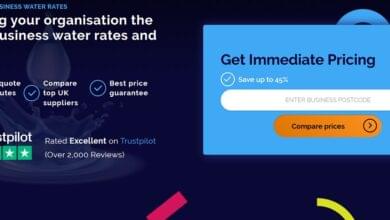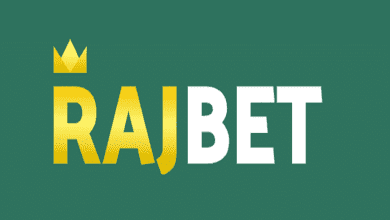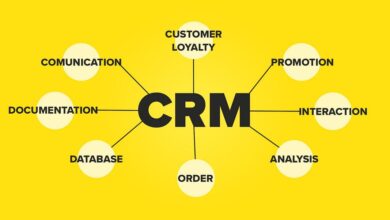Are you torn between starting a niche blog or a general one? In today’s crowded digital landscape, with over 500 million blogs vying for attention, choosing the right blogging approach can be the key to your success. Whether you’re a seasoned content creator or a budding blogger, the decision between niche and general blogging can significantly impact your audience engagement, monetization potential, and overall growth.
Niche blogs offer the allure of targeted content and dedicated readership, while general blogs promise broader appeal and diverse topics. But which one is right for you? In this post, we’ll dive deep into the world of blogging, exploring the advantages and challenges of both niche and general approaches. From audience building strategies to monetization opportunities, we’ll equip you with the knowledge to make an informed decision that aligns with your goals and passion.
Join us as we unravel the intricacies of niche vs. general blogging, helping you navigate the path to blogging success. Whether you’re looking to establish yourself as an authority in a specific field or aiming to cover a wide range of topics, this guide will illuminate the pros and cons of each approach, empowering you to choose the blog type that best suits your vision and aspirations. Let’s embark on this journey to discover which blogging style will set you up for success in the dynamic world of online content creation.
Understanding Niche and General Blogs
A. Definition of niche blogs
Niche blogs are specialized online platforms that focus on a specific topic or sector, catering to a targeted audience. These blogs delve deep into a particular subject area, offering in-depth content and expertise. For example, a niche blog might exclusively cover web development or even narrow down to front-end or back-end development.
B. Definition of general blogs
General blogs, in contrast, cover a broad range of topics. They typically feature content on various subjects such as culture, music, politics, and movies, often organized into different categories. General blogs aim to attract a wider audience by addressing multiple interests and offering diverse content.
C. Key differences between the two
| Aspect | Niche Blogs | General Blogs |
|---|---|---|
| Focus | Specific topic or sector | Multiple topics |
| Audience | Targeted, specialized | Broad, diverse |
| Content depth | In-depth, specialized | Varied, less specialized |
| Posting frequency | Less frequent, focused | More frequent, diverse |
| Credibility | Often perceived as more authoritative | Broader authority |
| Monetization | Typically affiliate programs and display ads | Multiple options including sponsored content |
| SEO strategy | Focus on low-competition keywords | Broader keyword targeting |
Niche blogs offer several advantages over general blogs in today’s saturated blogging landscape. They are easier to manage and start, requiring less frequent posting while allowing for more focused, high-quality content. Niche blogs also benefit from enhanced credibility within their specific area of expertise, attracting a dedicated following interested in that particular topic.
General blogs, while offering more diverse content, face greater competition and require significant investment in time and resources to stand out. They do, however, provide opportunities for broader audience reach and more varied monetization strategies.
With this understanding of niche and general blogs, we can now explore the specific advantages of niche blogging in more detail. Next, we’ll delve into the benefits that make niche blogging an attractive option for many content creators.
Advantages of Niche Blogging
Now that we’ve explored the differences between niche and general blogs, let’s dive into the advantages of niche blogging. This focused approach offers several benefits that can set your blog apart in the crowded online landscape.
A. Targeted audience engagement
Niche blogging allows you to cater to a specific audience with shared interests. By focusing on a particular topic, you can create content that resonates deeply with your readers, leading to higher engagement rates. This targeted approach often results in:
| Benefit | Explanation |
|---|---|
| Higher conversion rates | Niche audiences are more likely to act on recommendations |
| Quality advertisers | Attract advertisers seeking engaged consumers in your niche |
| Community building | Foster a sense of belonging among like-minded readers |
B. Improved SEO benefits
Concentrating on a specific niche can significantly enhance your search engine optimization efforts:
- Targeted keywords: Niche blogs can focus on long-tail keywords with less competition
- Expert positioning: Search engines may rank your site higher as an authority in your niche
- Improved search rankings: Focused content can lead to better visibility for relevant searches
C. Easier management and content creation
Niche blogging often simplifies the content creation process:
- Focused research: Stay up-to-date with a specific area rather than covering broad topics
- Consistent themes: Develop a content strategy around interconnected subjects
- Reduced content fatigue: While repetition can be a challenge, a narrow focus can also inspire creativity within constraints
D. Enhanced credibility and authority
By dedicating your blog to a specific niche, you can:
- Establish expertise: Position yourself as a thought leader in your chosen field
- Build trust: Readers come to rely on your in-depth knowledge and insights
- Attract collaborations: Other experts in your niche may seek partnerships or guest posting opportunities
With these advantages in mind, next, we’ll explore the benefits of general blogging to provide a comprehensive comparison for aspiring bloggers.
Benefits of General Blogging
Now that we’ve explored the advantages of niche blogging, let’s turn our attention to the benefits of general blogging. While niche blogs focus on specific topics, general blogs offer a different set of advantages that can be appealing to many content creators.
Broader readership potential
General blogs have the advantage of attracting a wider audience due to their diverse content. By covering various topics, these blogs can appeal to readers with different interests, potentially increasing overall traffic and engagement.
Diverse content opportunities
One of the key benefits of general blogging is the flexibility to explore multiple subjects. This approach allows bloggers to:
- Experiment with different content types
- Adapt to trending topics quickly
- Cater to seasonal interests
- Showcase a range of expertise
Multiple monetization options
General blogs often have more diverse monetization opportunities compared to niche blogs. Here’s a comparison of potential revenue streams:
| Monetization Method | General Blog | Niche Blog |
|---|---|---|
| Display Advertising | Wide range of advertisers | Limited to niche-specific ads |
| Affiliate Marketing | Various product categories | Focused on niche products |
| Sponsored Content | Broader range of sponsors | Niche-specific partnerships |
| Digital Products | Multiple topics and formats | Limited to niche expertise |
Flexibility in topic exploration
General blogging allows for greater creativity and experimentation. Bloggers can:
- Switch between topics based on personal interest
- Respond to reader feedback and preferences
- Explore interconnected subjects
- Develop a well-rounded content strategy
With this flexible approach, general bloggers can maintain reader interest by consistently offering fresh and diverse content. This versatility can be particularly beneficial for those who enjoy writing about various subjects or are still discovering their primary areas of interest.
As we move forward, it’s important to consider that while general blogging offers these benefits, it also comes with its own set of challenges. In the next section, we’ll explore the difficulties faced by both niche and general bloggers, providing a balanced view of each approach.
Challenges of Each Approach
Niche blogging limitations
Niche blogging, while offering a targeted approach, comes with its own set of challenges. One of the primary limitations is the restricted scope for content creation. As you delve deeper into a specific topic, you may find yourself running out of fresh ideas or repeating similar content. This can lead to content fatigue, both for you as a writer and for your audience.
Another significant challenge is the limited audience potential. By focusing on a narrow niche, you naturally restrict your reach to a smaller group of interested readers. This can make it harder to grow your blog and achieve substantial traffic numbers.
| Niche Blogging Limitations | Impact |
|---|---|
| Limited content scope | Content fatigue, repetition |
| Restricted audience | Slower growth, lower traffic |
| Market saturation | Difficulty in standing out |
| Dependence on trends | Vulnerability to niche decline |
General blogging competition
On the flip side, general blogging faces its own set of hurdles, with intense competition being the most prominent. The broad nature of general blogs means you’re competing with countless other websites for attention, making it challenging to stand out in the crowded digital landscape.
Content differentiation becomes a significant challenge in general blogging. With so many topics to cover, it’s harder to establish expertise in any single area, potentially leading to a lack of depth in your content. This can make it difficult to build a loyal following of readers who view you as an authoritative source.
| General Blogging Challenges | Impact |
|---|---|
| High competition | Difficulty in standing out |
| Lack of specialization | Harder to establish authority |
| Broad content strategy | Less focused audience engagement |
| SEO challenges | Harder to rank for specific keywords |
Now that we’ve explored the challenges of both niche and general blogging, let’s consider how these approaches can be monetized effectively.
Monetization Strategies
Now that we’ve explored the challenges of niche and general blogging, let’s delve into the exciting world of monetization strategies for both approaches.
Niche blog revenue sources
Niche blogs often have a clear advantage when it comes to monetization. Their focused audience allows for targeted affiliate marketing opportunities. For instance, a digital marketing niche blog can promote specific tools and services, earning commissions on sales. Additionally, niche bloggers can create and sell digital products tailored to their audience’s needs, such as e-books or online courses.
General blog income opportunities
General blogs, while having a broader audience, can still tap into various income streams. Display advertising is a common method, with platforms like Google AdSense allowing bloggers to earn revenue based on page views and clicks. Sponsored posts offer another avenue, where bloggers partner with brands to create content that resonates with their diverse readership.
Comparison of earning potential
| Monetization Method | Niche Blog | General Blog |
|---|---|---|
| Affiliate Marketing | High | Moderate |
| Digital Products | High | Moderate |
| Sponsored Posts | Moderate | High |
| Display Advertising | Moderate | High |
| Consulting Services | High | Moderate |
While both types of blogs have earning potential, niche blogs often have an edge in creating targeted, high-value offerings. General blogs, however, can leverage their broad appeal for more diverse sponsorship opportunities and higher overall traffic, which can translate to significant ad revenue.
It’s worth noting that regardless of the blog type, success in monetization requires producing high-quality content, optimizing for search engines, and building an engaged community. These factors play a crucial role in attracting and retaining an audience, which is the foundation for any successful monetization strategy.
With monetization strategies in mind, our next focus will be on the critical aspect of audience building and engagement, which is essential for implementing these revenue-generating methods effectively.
Audience Building and Engagement
Now that we’ve explored monetization strategies, let’s delve into the crucial aspect of audience building and engagement for both niche and general blogs.
Niche blog community development
Niche blogging offers unique opportunities for community development. By thoroughly understanding your target audience and performing competitor analysis, you can accurately identify audience demographics. This knowledge allows you to create content that resonates with your specific readership, fostering a sense of community.
To build a strong niche community:
- Define your Unique Value Proposition (UVP) to differentiate your blog
- Research and generate engaging topics within your niche
- Craft captivating headlines that address key problems and use emotional language
- Engage users through calls to action, polls, and review requests
General blog reader interaction
While general blogs cater to a broader audience, engagement strategies remain crucial. Focus on creating high-quality, informative content that adds unique value to readers across various topics. Proper formatting and the use of visual content, such as images and infographics, can significantly boost engagement for general blogs.
Social media and email list strategies
Both niche and general blogs can benefit from strategic social media and email list management. Here’s a comparison of strategies:
| Strategy | Niche Blogs | General Blogs |
|---|---|---|
| Content focus | Highly targeted, niche-specific | Diverse, broad appeal |
| Platform selection | Niche-specific platforms | Multiple popular platforms |
| Posting frequency | Consistent, based on niche demand | Regular, varied content |
| Community engagement | Deep, topic-specific discussions | Broad, diverse interactions |
| Email segmentation | Highly targeted segments | Broader interest categories |
Regularly monitor performance using tools like Google Analytics to assess audience engagement and make necessary adjustments. Promote your blog through various channels, particularly social media, to attract traffic and ensure ongoing audience engagement.
With these audience building and engagement strategies in mind, next, we’ll explore the intricacies of content creation and management for both niche and general blogs.
Content Creation and Management
Now that we’ve explored audience building and engagement, let’s delve into the crucial aspects of content creation and management for both niche and general blogs.
Niche blog content focus and depth
Niche blogging requires a deep understanding of a specific topic, allowing content creators to craft highly specialized material. This approach aligns well with search engine optimization (SEO) strategies, as it enables bloggers to position themselves as authoritative experts in their chosen field. To create compelling niche content:
- Address unique problems within the niche
- Personalize experiences for the target audience
- Embrace storytelling to engage readers
Niche-specific content fosters a sense of community among readers, as it resonates deeply with a well-defined audience. This focused approach often leads to higher engagement rates and improved customer loyalty.
General blog content variety and scheduling
General blogs, in contrast, cover a broader range of topics, requiring a different content strategy:
| Aspect | Niche Blog | General Blog |
|---|---|---|
| Topic Range | Narrow, specialized | Wide, diverse |
| Content Depth | In-depth, expert-level | Varied, often introductory |
| Posting Frequency | May be less frequent | Often more frequent |
| Audience Focus | Highly targeted | Broader appeal |
General blogs need to maintain a consistent posting schedule to keep their diverse audience engaged. This approach often involves creating content calendars and managing a variety of topics to appeal to a wider readership.
Quality vs. quantity considerations
When it comes to content creation, both niche and general blogs must balance quality and quantity:
- Niche blogs: Focus on high-quality, in-depth content that showcases expertise. While posting frequency may be lower, each piece should offer significant value to the specialized audience.
- General blogs: Aim for a mix of quality and quantity. While maintaining a regular posting schedule is important, ensure that each piece still provides value to readers.
For both types, it’s crucial to track engagement metrics, conversion rates, and audience growth to measure content success. Additionally, gathering qualitative feedback can help refine content strategies over time.
With these content creation and management strategies in mind, next, we’ll explore how to choose the right blog type for your specific goals and circumstances.
Choosing the Right Blog Type for You
Now that we’ve explored content creation and management, let’s focus on choosing the right blog type for you. This decision is crucial for your blogging journey and will shape your content strategy moving forward.
Assessing personal goals and resources
When deciding between niche and general blogging, it’s essential to evaluate your personal goals and available resources. Consider the following factors:
| Factor | Niche Blogging | General Blogging |
|---|---|---|
| Time commitment | Focused research on specific topics | Broader research across various subjects |
| Expertise required | Deep knowledge in a particular area | General knowledge across multiple areas |
| Monetization potential | Higher potential in specific markets | Diverse opportunities across markets |
| Content creation | Consistent theme and style | Flexibility in topics and formats |
Evaluating expertise and interests
Your expertise and interests play a crucial role in determining the right blog type:
- Assess your knowledge: If you have in-depth expertise in a particular area like photography, food, or personal finance, a niche blog might be the best fit.
- Consider your passions: Choose a blog type that aligns with your interests to ensure long-term commitment and enthusiasm.
- Analyze market demand: Use tools like Google Trends to gauge interest in your chosen niche or general topics.
Considering long-term growth potential
When selecting your blog type, think about its future prospects:
- Niche longevity: Ensure your chosen niche has staying power and isn’t just a passing trend.
- Content potential: Consider whether you can create diverse, evergreen content within your chosen niche or general topics.
- Audience growth: Evaluate the potential for building a dedicated audience and fostering engagement over time.
Remember, the right blog type should balance your personal interests with market demand and growth potential. Whether you choose a niche or general approach, focus on creating high-quality, relevant content that resonates with your target audience.
Conclusion
Choosing between a niche or general blog ultimately depends on your goals, resources, and target audience. Niche blogs offer the advantage of targeted content, easier management, and potentially faster growth in a specific area. They allow you to establish authority and credibility within a particular subject, attracting a dedicated audience interested in your expertise. On the other hand, general blogs provide flexibility to cover a wide range of topics, potentially reaching a broader audience and offering diverse monetization opportunities.
Consider your passion, expertise, and long-term objectives when making your decision. If you have a deep interest in a specific subject and want to become a recognized authority, a niche blog might be the right choice. However, if you enjoy exploring various topics and prefer the versatility of a broader platform, a general blog could be more suitable. Whichever path you choose, remember that success in blogging requires consistent effort, quality content, and effective audience engagement strategies. Take the time to evaluate your strengths and goals and select the blog type that aligns best with your vision for online success.





